Maskne: Everything you need to treat face-mask acne
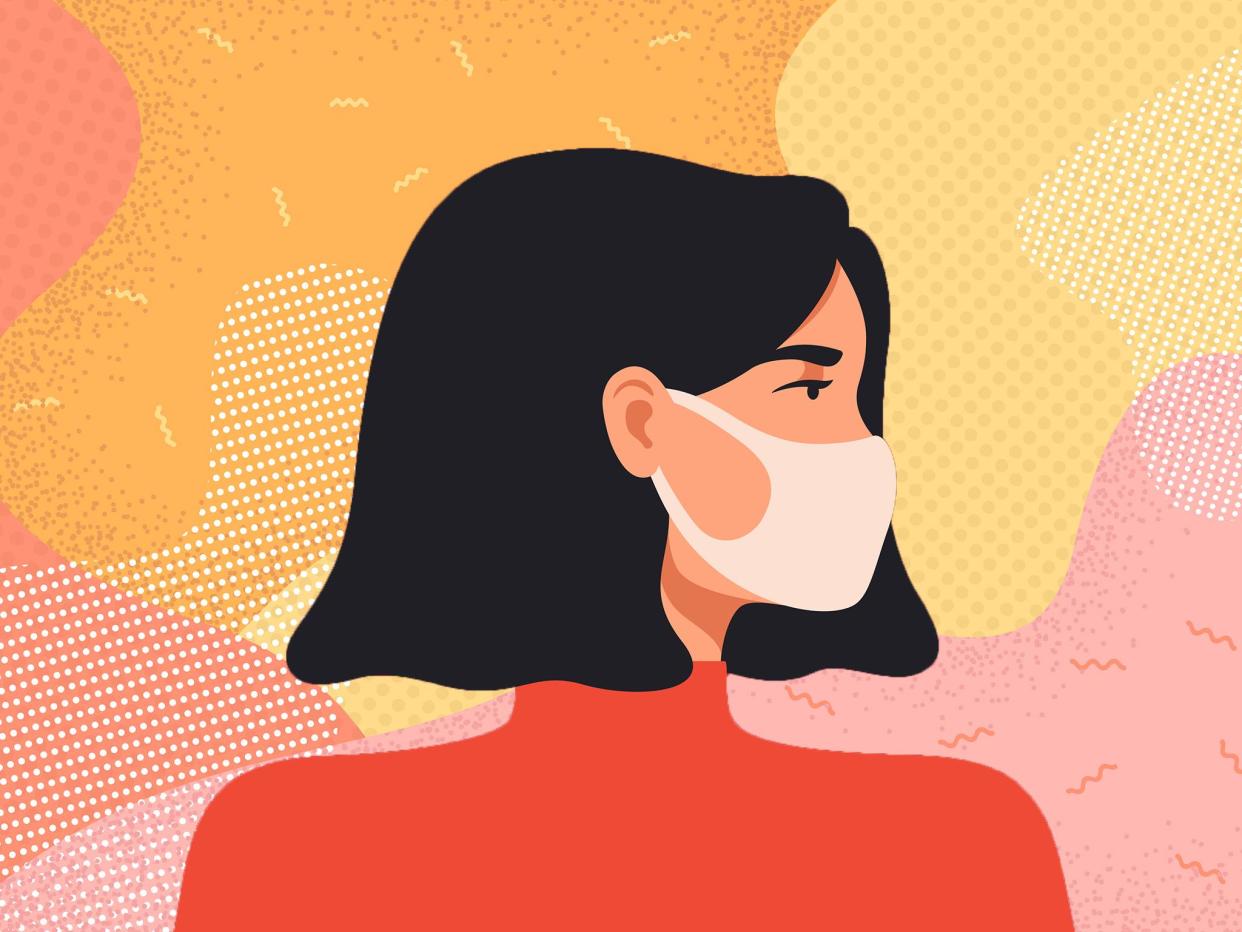
There have been many ways we’ve had to adapt to a new way of living through the coronavirus pandemic, from social distancing to not seeing friends and family for months on end.
But one of the biggest adjustments is wearing a face covering. On 22 September, Boris Johnson announced the latest rules to combat the rise in coronavirus cases. Fines for failing to wear a face mask have risen from £100 for a first-time offence to £200.
It is mandatory to wear a face covering on public transport, in all shops, banks, transport hubs and post offices in England. As well as in indoor settings where you're likely to come into contact with people you don't normally meet, including cinemas, museums, galleries, and places of worship.
In the prime minster’s address to the House of Commons on 22 September, this law has been extended to include staff in retail, people in taxis and private hire vehicles, and everyone using hospitality services – for example walking to your table or the toilet during a meal; this was previously only the case if you were getting a takeaway.
Seeing people wearing face coverings is slowly becoming the "new normal". In our face mask buying guide, we’ve covered the different types of mask, what to consider before you buy one and how to wear and wash one.
You can trust our independent round-ups. We may earn commission from some of the retailers, but we never allow this to influence selections. This revenue helps us to fund journalism across The Independent.
Since the beginning of lockdown, many businesses have pivoted their production to manufacturing face masks, along with individuals creating their own via retailers such as Etsy. Other larger retailers who have launched cloth face masks include Mango and Asos, along with independent brands including Aeibe, Newt, Just Hype, Florence Bridge, Plumo and Wawa Clothing.
However, as face masks have become as necessary as your keys when leaving the house, you may have found after wearing them that your skin has started to breakout, a condition which has been dubbed “maskne”.
Dr Adil Sheraz, consultant dermatologist and British skin foundation spokesperson explains how it happens: “Due to the tight-fitting nature of the mask, this can lead to blockage of the follicular openings (the surface of the epidermis) and cause outbreaks of spots and acne, the increased sweating doesn’t help either.”
Because masks are fitted to your face, moisture from breathing while wearing one can become trapped on the skin, increasing humidity which Dr Sheraz says can also cause breakouts.
“Also, the act of constantly adjusting and touching the mask and thus touching your face will transfer oil, dirt and irritants to the skin.“
To minimise this, he recommends a custom-fitted mask, but if that's not possible, stick to breathable material such as silk, or silk lined masks. He goes on to say: “A silk mask with multiple layers would be ideal for sensitive acne-prone skin.”
Cotton cloth masks are also soft enough to be comfortable on sensitive skin and typically are lightweight, made in pleated or moulded designs to better fit your face.
To ensure you’re as protected as possible, look for cotton masks that have a built-in filter or a pocket which you can add a filter too. The coverings from Aeibe are made in England with 100 per cent cotton lining and 100 per cent non-woven polypropylene filters from Korea on the inside.
It also has a soft nose clip to help it shape to your face and stretchy ear loops to keep it secure. Each masks also comes with a cotton bag to keep it safe when you're not wearing it and a spare filter.
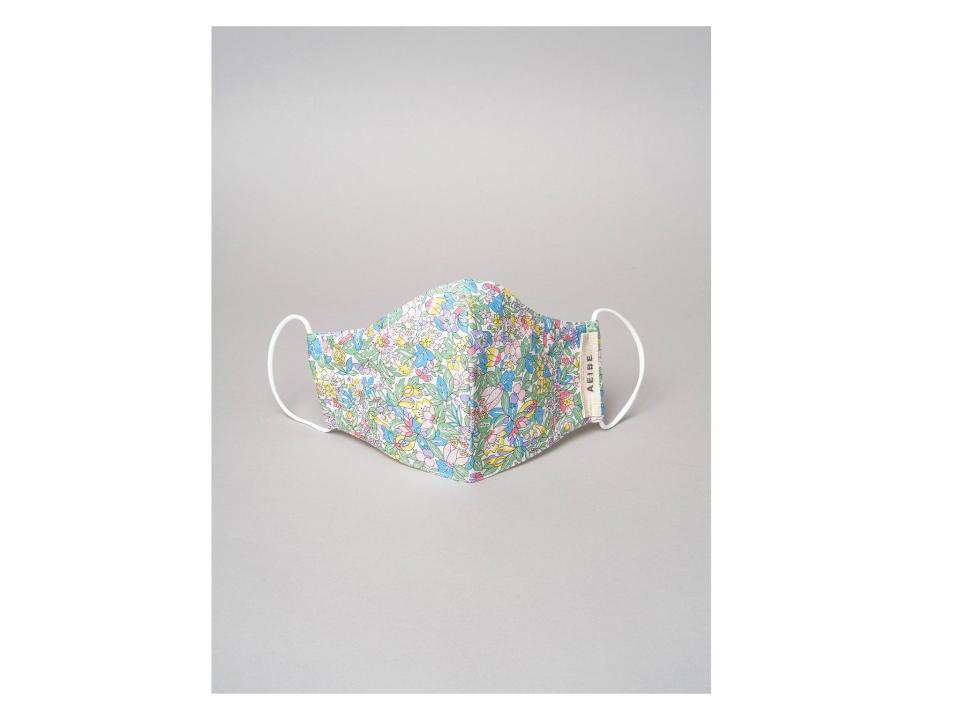
If you have a reusable cloth mask, Dr Sheraz advises to wash it regularly, not only is it vital in protecting against the coronavirus but will also clear any oil, dirt or bacteria that could result in skin irritation or acne.
So how should your skincare routine change to adapt to wearing a mask and reducing maskne? With the help of dermatologists, we've compiled the products and ingredients to use that will alleviate aggravated skin.
Cleansing
Dr Toni Phillips, group clinical director at Destination Skin, stresses the importance of cleansing properly to keep pesky spots at bay.
"It minimises congested skin and clogged pores, which can lead to inflammation, large pores, blackheads and a dull and uneven complexion. The right cleanser for your skin type will remove excess oil if present, gently exfoliate dead skin cells and debris, whilst leaving the skin barrier intact," she says.
If you have a combination-oily skin type, and therefore are often prone to acne, she recommends the SkinCeuticals blemish and age cleanser (lookfantastic, £40), a lightweight gel formula that has exfoliating agents to decongest pores.
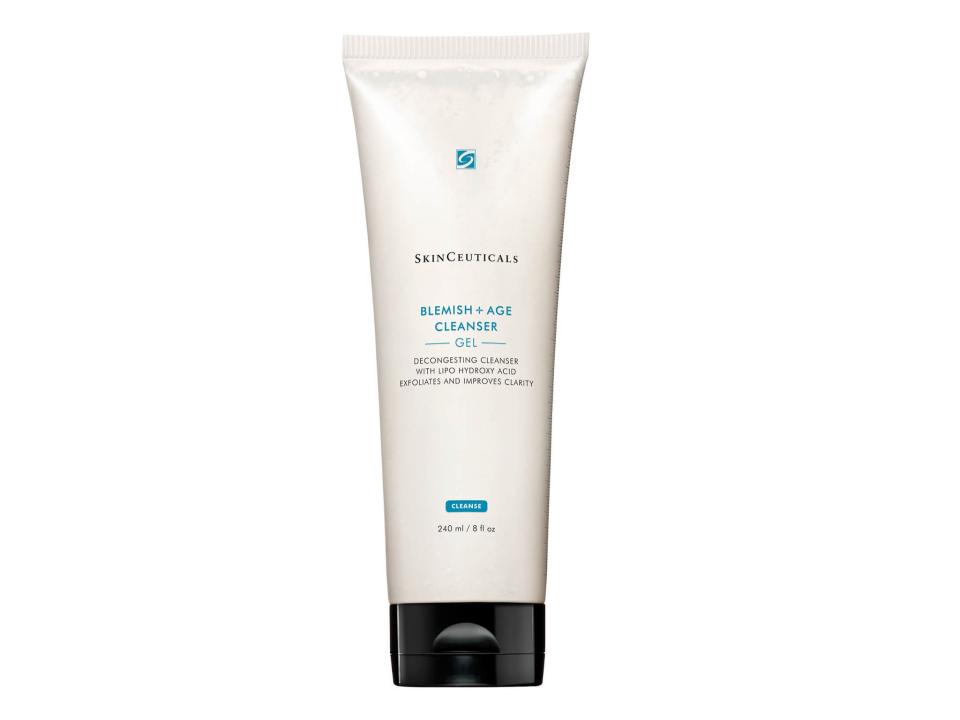
To apply, massage into a wet face and neck, morning and evening, then rinse with warm water and flannel.
If you like to wear make-up under your mask, experts recommend double-cleansing in the evenings to ensure pores do not become clogged, which can exacerbate acne. If you don't remove make-up properly, it will also render any products you use after less effective as they're required to be applied to a completely clean face in order to work.
This means using a balm or oil-based cleanser to remove make-up and SPF, followed by a lighter gel or milk cleanser to thoroughly cleanse the skin. The Clinique take the day off cleansing balm (John Lewis & Partners, £21.25) is a great all-rounder.
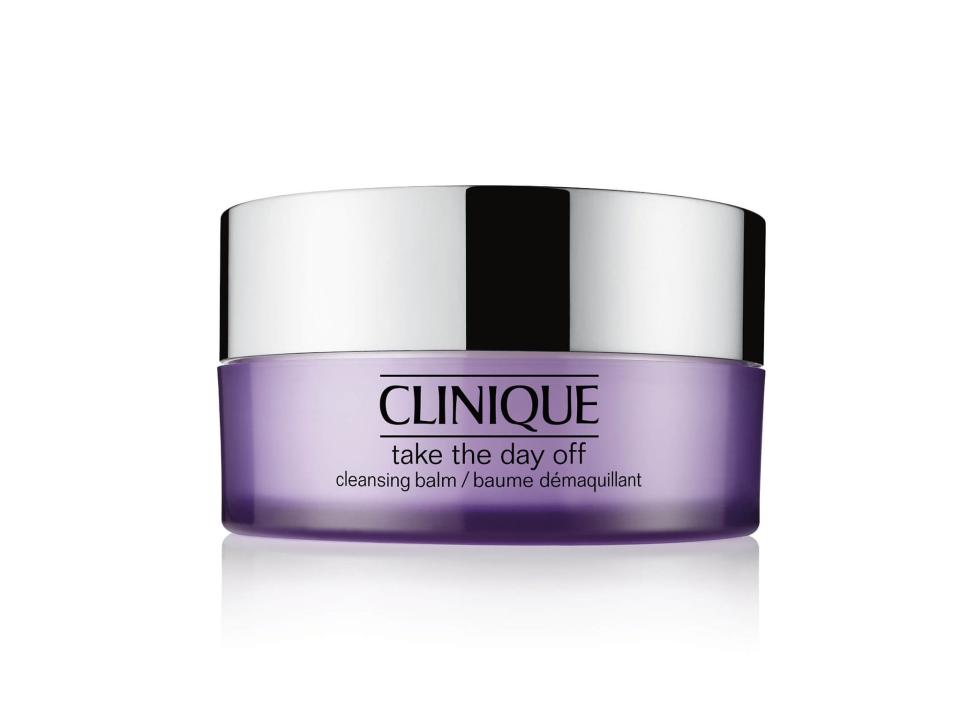
It’s fragrance-free (a known skin irritant) and once massaged onto a dry face, melts down all make-up, even the most stubborn of mascaras.
Spot treatment
For blemishes that won't budge, a targeted spot treatment can speed up the healing process, while reducing irritation and redness.
Look for ingredients lists that contain salicylic, glycolic and lactic acids, which exfoliate, dissolve gunk and grime and break down debris clogging pores, which cause spots.
We love the Typology salicylic acid serum (Typology Paris, £11.80). The vegan, fragrance-free formula is fast-acting and within a few days of use, you will see a reduction in the size of your spots.
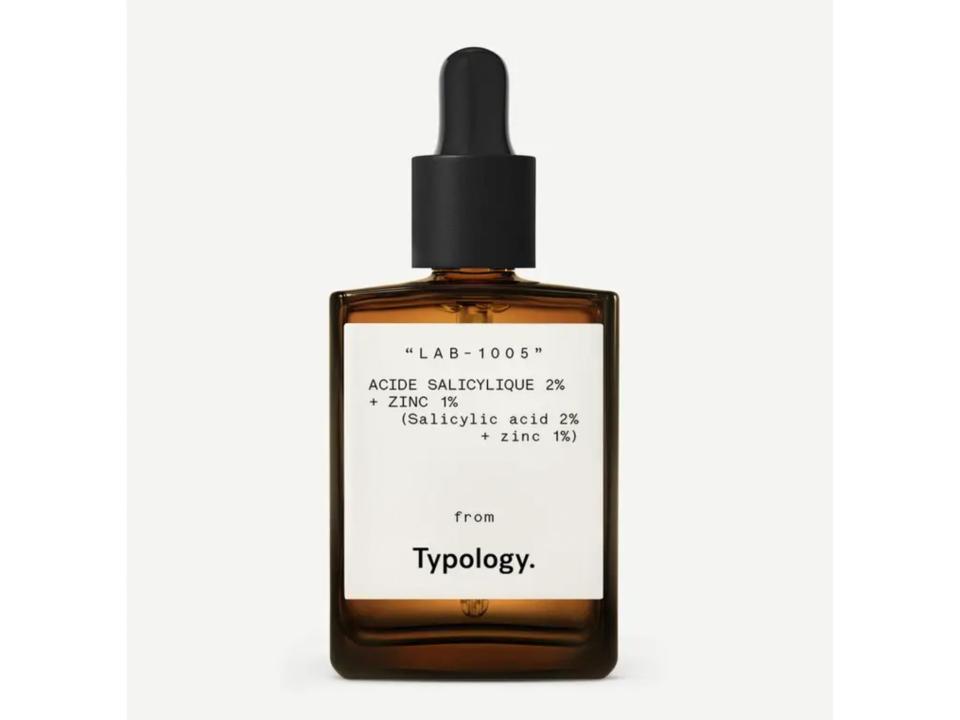
As it does specifically target blemishes, you only need to apply it to those areas, rather than your whole face.
Topping our IndyBest guide to spot treatments was the Ren Skincare clearcalm non-drying spot treatment (Ren, £17.50).
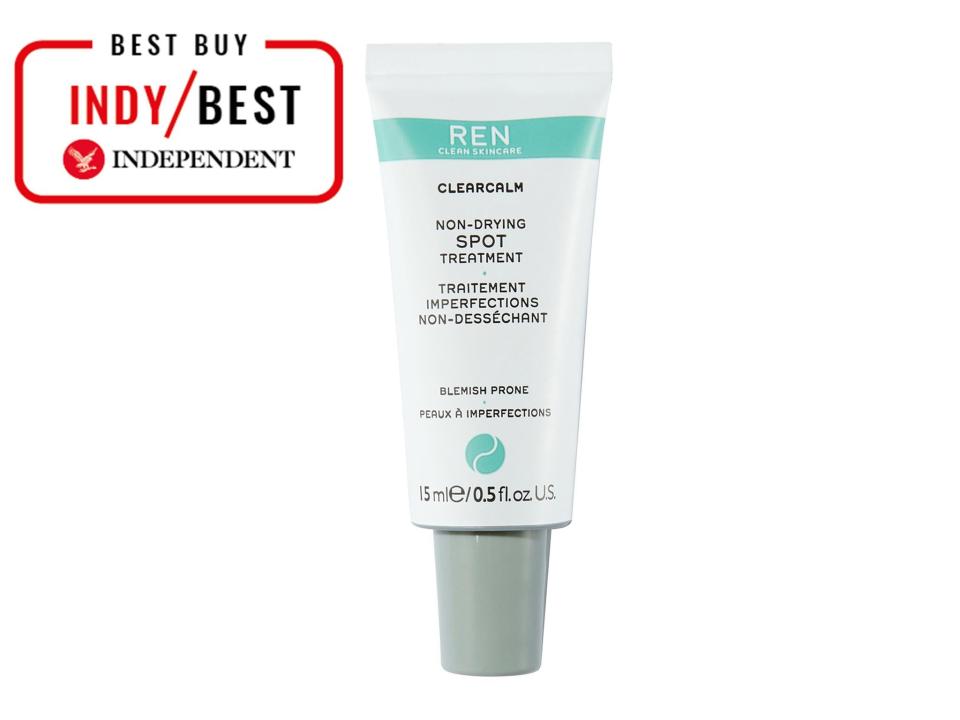
It's a gentle treatment containing willow bark and salicylic acid which dissolves grime build-up in pores, and has prebiotics in it to rebalance the good bacteria on your skin and prevent future breakouts.
Our reviewer said: "It doesn’t cause flakiness, can be worn beneath make-up, and had a noticeable impact on swelling, size and redness in just 10 hours".
Moisturise
As the last step in your skincare regimen, using moisturiser plays an important part in tackling maskne.
According to consultant dermatologist Dr Justine Hextall, a light moisturiser with hydrating ingredients such as glycerine and ceramides will help prevent irritation from your mask.
The La Roche-Posay effaclar duo + SPF30 (Boots, £17.50) is a gel-based moisturiser that impressed us in our guide to the best SPF moisturisers.

While it won’t clear up spots overnight (let’s face it nothing will do that), it will reduce blemishes. our reviewer saw noticeably clearer skin within a week of use.
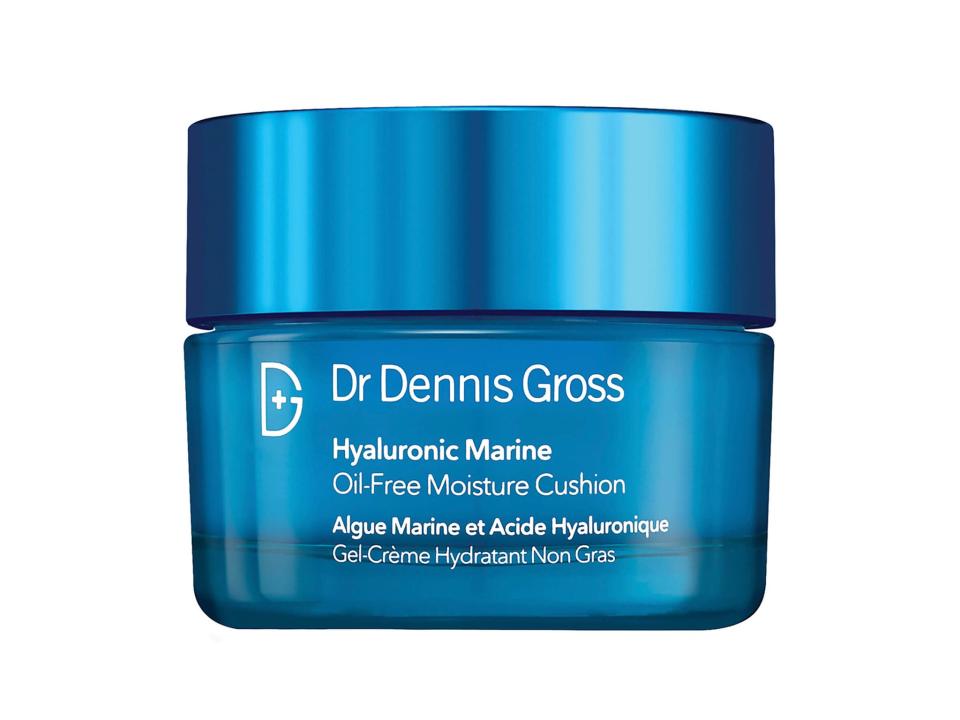
It has a mattifying finish too which will control a shiny forehead and nose. Best of all it contains a broad-spectrum sunscreen so you’ll be adequately protected from UVA and UVB rays while keeping imperfections at bay.
Alternatively, try the Dr Dennis Gross Skincare hyaluronic marine oil-free moisture cushion (Net-A-Porter, £59), a lightweight gel texture in a hyaluronic-acid rich formula that will prevent water loss without leaving your skin feeling greasy or overloaded.
Oil-free formulas will work best for acne, as they minimise oil production, which can clog pores and increase breakouts and won't add extra shine.
Voucher codes
For the latest discounts on skincare, try the below links:
Read More
Face mask buying guide: Everything you need to know as lockdown eases
Where to buy face coverings for kids as lockdown eases
Face masks: Where to buy cloth coverings as lockdown eases
We've found the lipsticks that won't budge under a face mask


